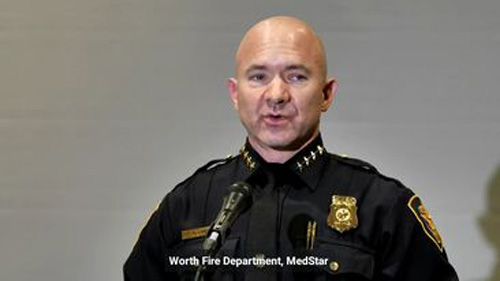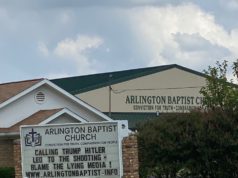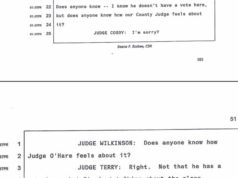Last Thursday and just minutes after 6 a.m., 911 calls began flooding Fort Worth police and fire dispatch centers. Paramedics soon arrived on a scene that one Medstar spokesperson said his group “trains for but hopes and prays never happens.”
On a southbound stretch of I-35 near downtown Fort Worth, several dozen vehicles were piled into a twisted wreck site that spanned half a mile. Some vehicles were crushed so badly that it was difficult to see where one mangled vehicle stopped and another began. Low visibility and freezing rain made extricating trapped passengers difficult. Several paramedics, police officers, and fire department crews received minor injuries, largely from ice-related falls, during the subsequent effort to transfer dozens of injured men and women to area hospitals. The 133-car pileup ultimately led to six deaths and several dozen injuries.
The next day, police chief Neil Noakes announced an investigation into the accident. North Tarrant Express, which manages the toll lanes where the accident occurred, said in a public statement that “maintenance crews started pre-treating the corridors on Tuesday morning and have been spot-treating continuously as we monitored the roadway. We will continue treating the highways through the weekend and into next week, as long as the storm is active.”
The message, which did not include details of how or if the area around the pileup was treated, did little to settle the matter. Several elected officials have demanded answers from North Tarrant Express (and other groups) and called for a thorough investigation into the causes of the pileup.
Confusion over who is responsible for treating Texas’ roads have been a reminder of the patchwork of state, county, local, and private entities that pre-treat or deice roads and overpasses. Through its website, the Texas Department of Transportation (TxDOT) said, “Roadways are prioritized by interstate, U.S. highway, state highway, and farm-to-market as well as bridges, overpasses, high traffic interchanges, and high traffic roadways. Local authorities are responsible for city and county roads.”
The stretch of road that caused the pileup was built and managed by a private company, TEXPress Lanes. Although TxDOT owes the lanes built by TEXPress, the state does not maintain the privately managed toll lanes, and that has some officials worried.
State Rep. Ramon Romero recently tweeted that “This inclement weather was foreseeable, and lives were lost because a private company didn’t uphold its end of the deal.”
Texas toll roads were traditionally publicly funded. Once the cost of building the toll roads were met (like with I-30), the tolls were removed. In recent decades, TxDOT has deferred road-building expenses by allowing private companies to build and maintain toll roads that are not opened for free use by the general public when construction costs are recouped. Reporting from the Texas Tribune found that one private toll road would “yield $18.1 billion for a private firm over the life of the contract.”
Several factors played a role in Thursday’s horrific pileup: low visibility, freezing temperatures, road design, and road conditions, among others. If the investigations by the National Transportation Safety Board (the federal agency that conducts accident investigations) and Fort Worth police department find negligence on the part of private companies to have played a role in causing the deadly accident, Texans should question the true cost of our increasingly privatized highway system.












